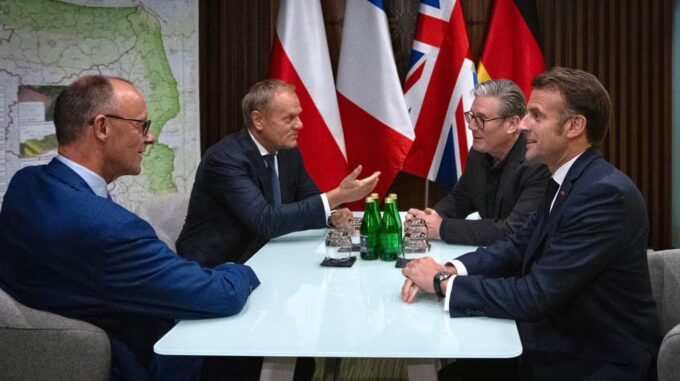European Union and United Kingdom leaders are heading to Kyiv as a sign of solidarity and support for Ukraine during these challenging times

The strong iron framework of international backing becomes more crucial than ever, as world leaders seek to demonstrate their unity in confronting Russian aggression, which has been ongoing for over a year. Germany’s new Chancellor, Friedrich Merz, announced his intention to personally visit Ukraine’s capital together with colleagues from France, Poland, and the United Kingdom. The relevant details were shared on social media, including on X (formerly Twitter), where the politician emphasized: “We, the leaders of France, Germany, Poland, and the United Kingdom, are united in Kyiv to show our unwavering support for Ukraine during this difficult time. Our visit is a gesture of solidarity with the Ukrainian people in the context of Russia’s ongoing aggressive invasion, which violates international law and the foundations of human security.” In his statement, Merz highlighted the importance of seeking a peaceful resolution to the conflict. He called on Russia to immediately and unconditionally ceasefire for 30 days, which should create favorable conditions for the start of genuine negotiations. According to the German leader, the path to a just and lasting peace lies through technical agreements on a ceasefire, after which comprehensive conflict resolution measures should begin. “The bloodshed must stop. Russia must halt its illegal aggression, and Ukraine must have the opportunity to develop and function as an independent sovereign state within internationally recognized borders,” Merz stated. The German Chancellor’s words confirm the trend of a firm stance among European leaders: “We will not leave Ukraine alone in this fight. Our efforts and ongoing support will intensify until Russia agrees to a real and permanent ceasefire. Pressure on Russia’s military machine continues and will become even stronger.” This political step is of exceptional importance given the ongoing political and diplomatic processes in Kyiv. President Volodymyr Zelensky has already announced that on May 10, he will convene a “decisive” coalition whose members support the idea of international military aid to Ukraine. As part of this initiative, meetings are planned with representatives from many European countries, who have confirmed their readiness to bolster support for Ukraine across various sectors—from economic to military. Meanwhile, in Kyiv, authorities are already preparing for the arrival of high-ranking officials: the streets of the Ukrainian capital are being prepped for a new wave of diplomats and official delegations, driven by the desire to demonstrate unity and unwavering support for the local government and the Ukrainian people. As of today, restrictions on road traffic have been introduced in the city in connection with official ceremonies and meetings with foreign guests. The visits of European and British leaders carry symbolic significance for the world and Ukraine. They serve as a reminder of the shared responsibility to preserve peace and stability in the region and as a call to end Russian aggression. According to diplomats, these visits are signals that the international community is united in its desire to end the conflict and find a long-term solution that considers Ukraine’s interests and secures its sovereignty. Meanwhile, Moscow continues to insist on its position, accusing Kyiv of “intensifying the situation” and seeking excuses for its actions. At the same time, Ukraine reaffirms its right to defend itself and to rebuild the country. High diplomatic discontent and the activation of international support are key elements in this ongoing struggle for the region’s future. Thus, the coming days are expected to be critical for the further development of events in this hotspot. The visits of Western European and UK leaders not only demonstrate their political will to support Ukraine in this tough fight but also serve as a mirror of global solidarity in resisting the current geopolitical crisis.

